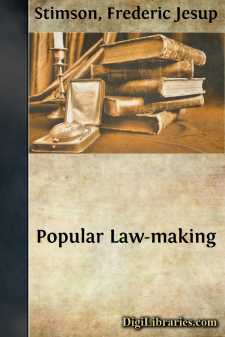Categories
- Antiques & Collectibles 13
- Architecture 36
- Art 48
- Bibles 22
- Biography & Autobiography 813
- Body, Mind & Spirit 142
- Business & Economics 28
- Children's Books 17
- Children's Fiction 14
- Computers 4
- Cooking 94
- Crafts & Hobbies 4
- Drama 346
- Education 46
- Family & Relationships 57
- Fiction 11829
- Games 19
- Gardening 17
- Health & Fitness 34
- History 1377
- House & Home 1
- Humor 147
- Juvenile Fiction 1873
- Juvenile Nonfiction 202
- Language Arts & Disciplines 88
- Law 16
- Literary Collections 686
- Literary Criticism 179
- Mathematics 13
- Medical 41
- Music 40
- Nature 179
- Non-Classifiable 1768
- Performing Arts 7
- Periodicals 1453
- Philosophy 64
- Photography 2
- Poetry 896
- Political Science 203
- Psychology 42
- Reference 154
- Religion 513
- Science 126
- Self-Help 84
- Social Science 81
- Sports & Recreation 34
- Study Aids 3
- Technology & Engineering 59
- Transportation 23
- Travel 463
- True Crime 29
Pirate Gold
Description:
Excerpt
PART ONE: DISCOVERY.
It consisted of a few hundred new American eagles and a few times as many Spanish doubloons; for pirates like good broad pieces, fit to skim flat-spun across the waves, or play pitch-and-toss with for men's lives or women's loves; they give five-dollar pieces or thin British guineas to the boy who brings them drink, and silver to their bootblacks, priests, or beggars.
It was contained—the gold—in an old canvas bag, a little rotten and very brown and mouldy, but tied at the neck by a piece of stout and tarnished braid of gold. It had no name or card upon it nor letters on its side, and it lay for nearly thirty years high on a shelf, in an old chest, behind three tiers of tins of papers, in the deepest corner of the vault of the old building of the Old Colony Bank.
Yet this money was passed to no one's credit on the bank's books, nor was it carried as part of the bank's reserve. When the old concern took out its national charter, in 1863, it did not venture or did not remember to claim this specie as part of the reality behind its greenback circulation. It was never merged in other funds, nor converted, nor put at interest. The bag lay there intact, with one brown stain of blood upon it, where Romolo de Soto had grasped it while a cutlass gash was fresh across his hand. And so it was carried, in specie, in its original package: "Four hundred and twenty-three American eagles, and fifteen hundred and fifty-six Spanish doubloons; deposited by —— De Soto, June twenty-fourth, eighteen hundred and twenty-nine; for the benefit of whom it may concern."
And it concerned very much two people with whom our narration has to do,—one, James McMurtagh, our hero; the other, Mr. James Bowdoin, then called Mr. James, member of the firm of James Bowdoin's Sons. For De Soto, having escaped with his neck, took good pains never to call for his money.
II.
A very real pirate was De Soto. None of your Captain Kidds, who make one voyage or so before they are hanged, and even then find time to bury kegs of gold in every marshy and uncomfortable spot from Maine to Florida. No, no. De Soto had better uses for his gold than that. Commonly he traveled with it; and thus he even brought it to Boston with him on that unlucky voyage in 1829, when Mr. James Bowdoin was kind enough to take charge of it for him. One wonders what he meant to do with a bag of gold in Boston in 1829.
This happened on Thursday, the 24th of June. It was the day after Mr. James Bowdoin's (or Mr. James's, as Jamie McMurtagh and others in the bank always called him; it was his father who was properly Mr. James Bowdoin, and his grandfather who was Mr. Bowdoin)—after Mr. James's Commencement Day; and it was the day after Mr. James's engagement as junior clerk in the counting-room; and it was the day after Mr. James's engagement to be married; and it was the day but one after Mr. James's class's supper at Mr. Porter's tavern in North Cambridge. Ah, they did things quickly in those days; ils savoient vivre.
They had made him a Bachelor of Arts, and a Master of Arts he had made himself by paying for that dignity, and all this while the class punch was fresher in his memory than Latin quantities; for these parchment honors were a bit overwhelming to one who had gone through his college course non clam, sed vi et precario, as his tutor courteously phrased it. And then he had gotten out of his college gown into a beautiful blue frock coat and white duck trousers, and driven into town and sought for other favors, more of flesh and blood, carried his other degree with a rush—and Miss Abigail Dowse off to drive with him. And that evening Mr. James Bowdoin had said to him, "James!"
"Yes, sir," said Mr. James.
"Now you've had your four years at college, and I think it's time you should be learning something."
"Yes, sir," said Mr....



